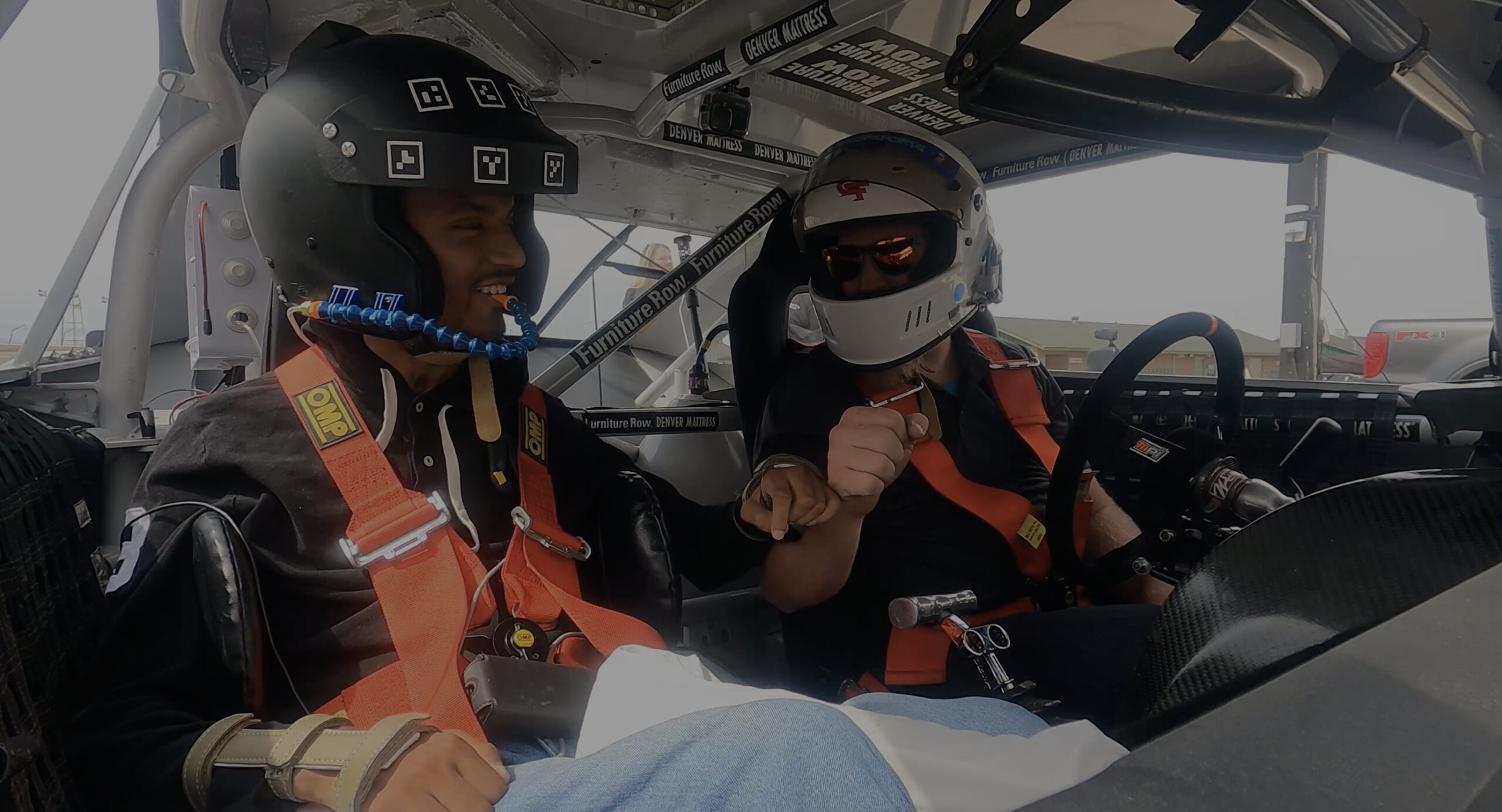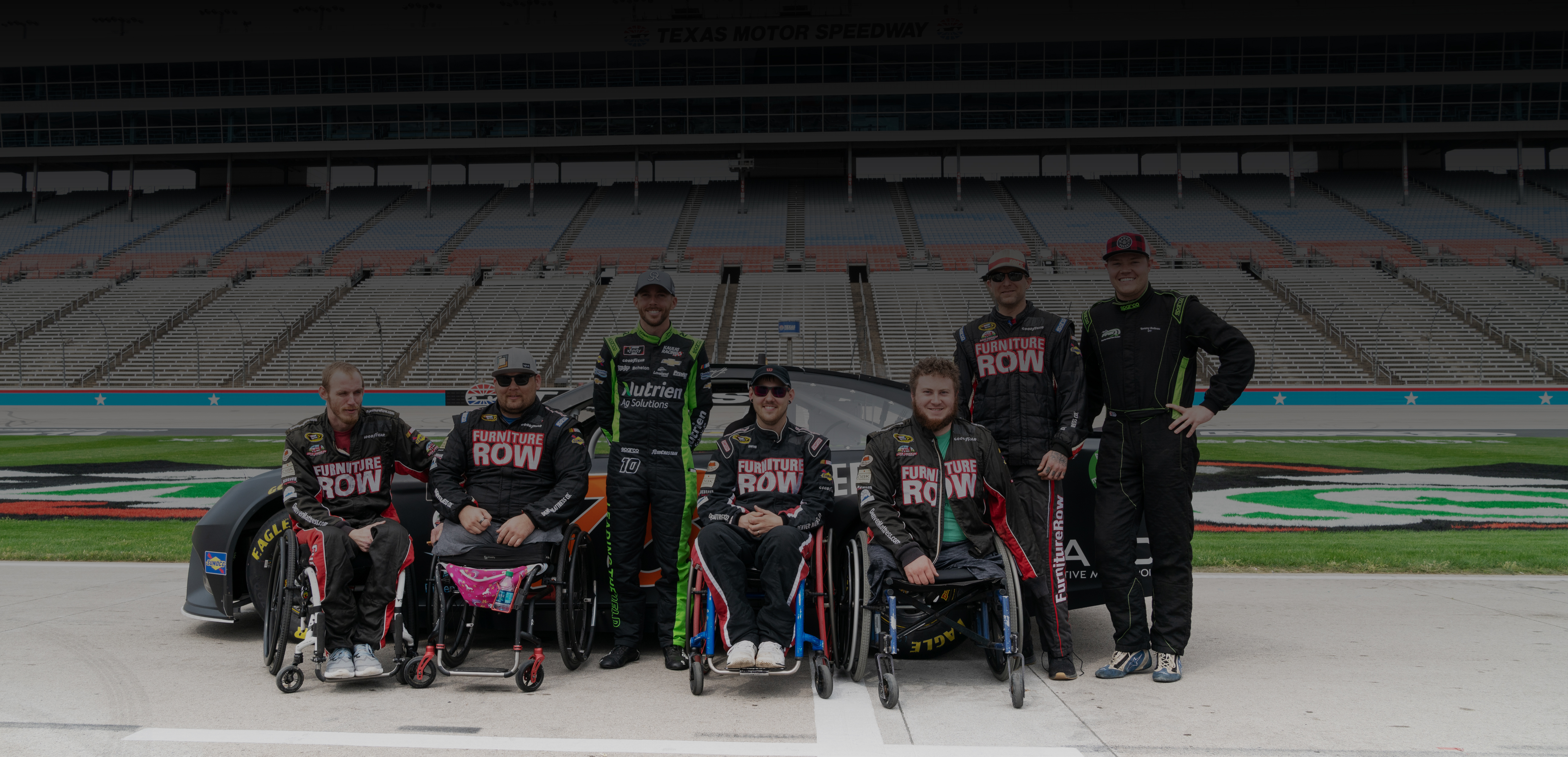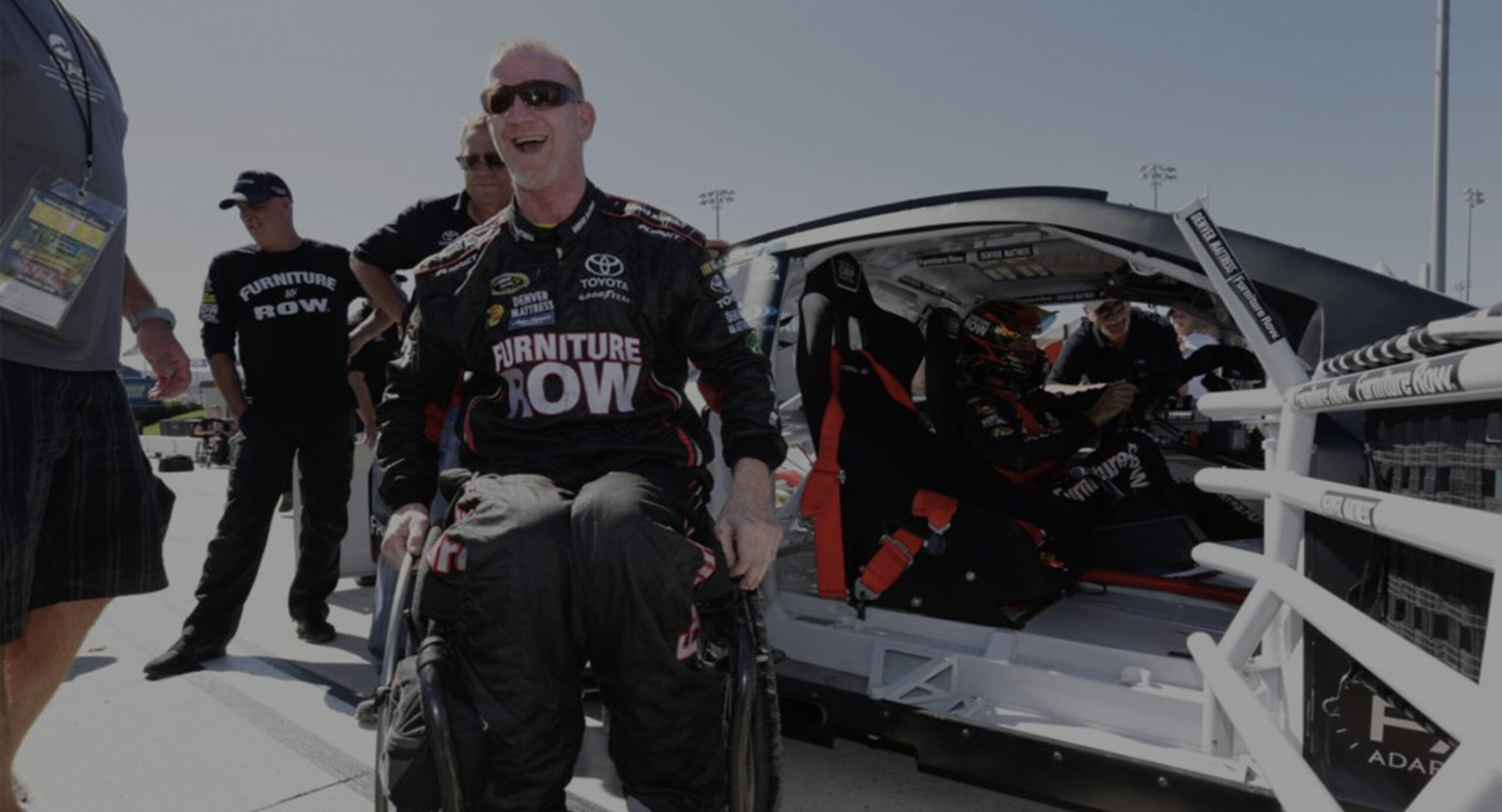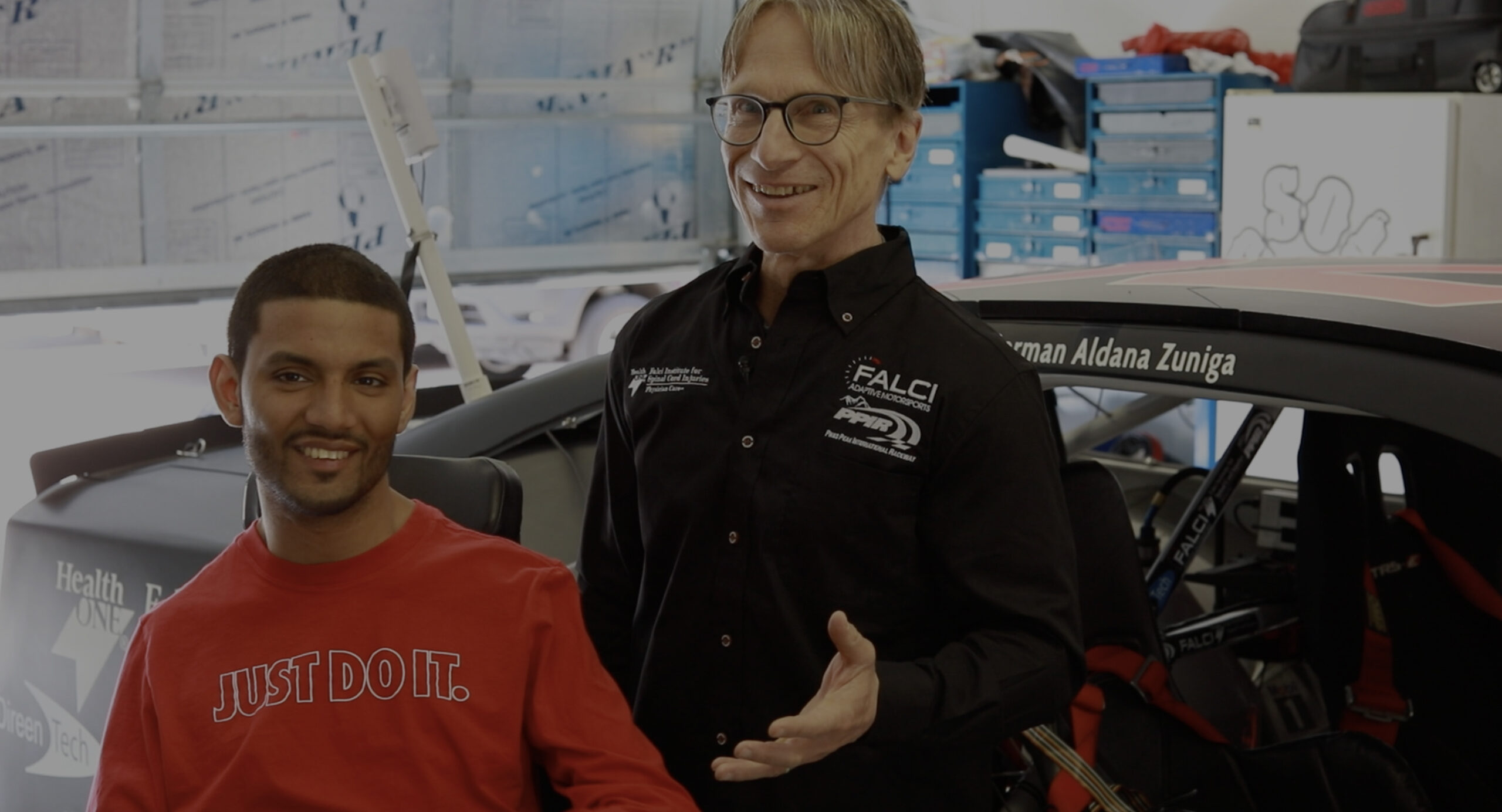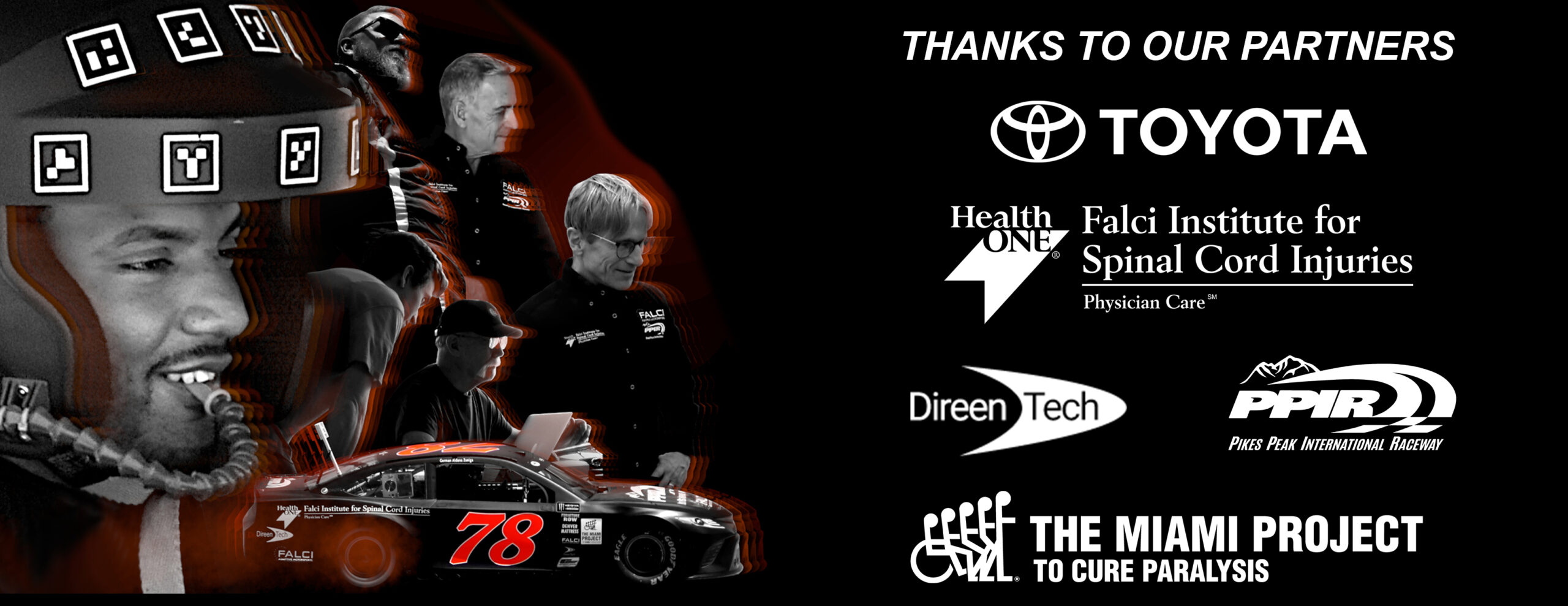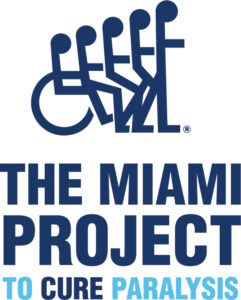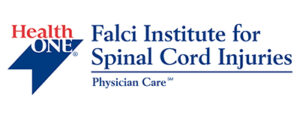Falci Motorsports
Falci Adaptive Motorsports is a nonprofit organization dedicated to advancing adaptive motorsports and the rapid advancements in adaptive technology. We are proud to be a part of the NASCAR racing community. For those individuals who have been injured from a spinal cord injury, or loss of limb, increased mobility and independence are key to quality of life. Through partnerships with several companies and organizations, Falci Adaptive Motorsports helps to move people with physical disabilities and paralysis forward to gaining that independence.
The newest iteration of Falci Adaptive Motorsports’ technology is Drive By Thought. What once seemed unimaginable is now a reality thanks to FAM’s most recent technological advancement. Through a variety of specialized partnerships, FAM has developed a brain-machine-controlled driving system which essentially uses thought to operate a vehicle. When the brain creates a thought, an electrical signal or “electrical fingerprint” is generated by the brain. An electrode placed strategically on the surface of the brain can capture these electrical signals, and sophisticated computer algorithms can be developed to recognize these “electrical fingerprints” or thoughts. The computer, after recognizing a particular thought, can then generate an electrical signal to actuate a mechanical system.
Our driver German Aldana Zuniga is a participant in the University of Miami Miller School of Medicine’s Miami Project to Cure Paralysis brain-machine interface program, and has an implanted brain electrode which can capture his electrical brain signals. The scientists and engineering collaborators at The Miami Project and FAM have combined forces to be able to feed this information into FAM’s computer interface which controls the drive mechanism. In May of 2022, Zuniga sucessfully pulled out of “pit row” and accelerated around the Pikes Peak International Raceway track using thought alone. Turns and braking were executed with movement of the driver’s head
through an in car camera and helmet system.
In phase two of this project we will add “brain-control” of the steering and brake allowing for complete control of the drive mechanism with thought alone. We anticipate substantial portions of phase two to be completed next year. This Brain Machine Interface (BMI) technology has the potential to profoundly change the way that disabled individuals navigate their everyday lives. Practical applications could include the driving of an electric wheelchair or golf cart, control of a robotic arm or assistive eco-skeleton device, control of home and communication systems (lights,heating/AC,opening doors, phone, internet), and even implanted medical devices,
helping to provide advancement towards freedom and independence for critically injured individuals.

